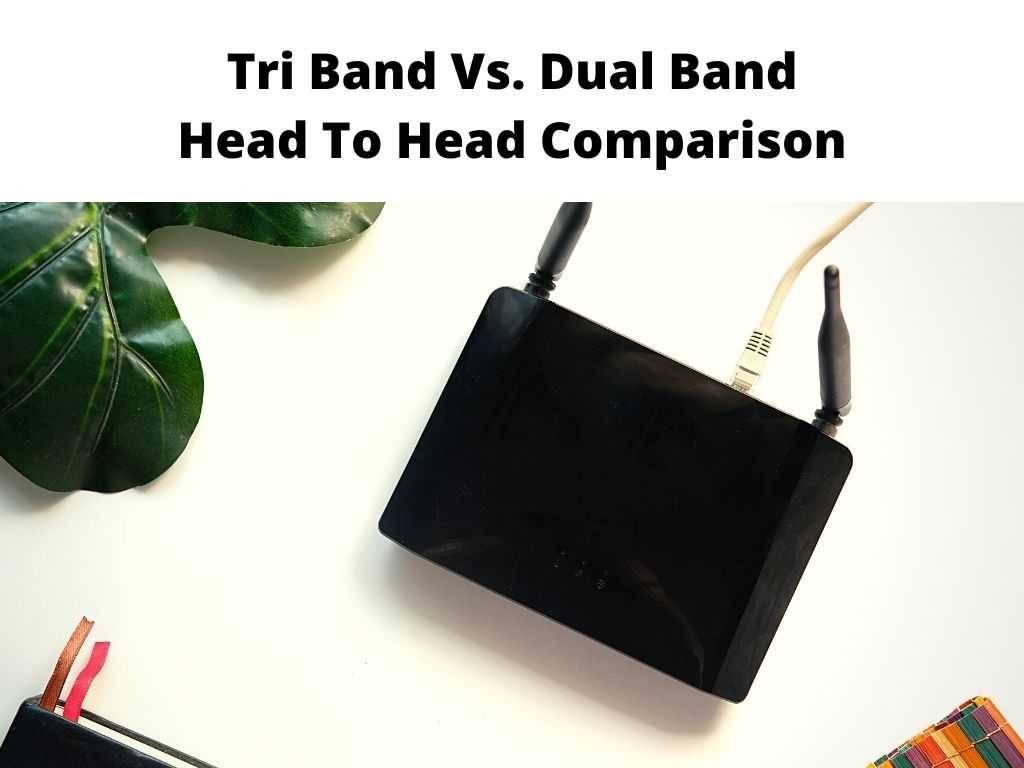
TL;DR: The crux of the difference between tri-band and dual-band routers lies in their frequency bands and the speed they offer. Dual-band routers provide two frequency bands – 2.4 GHz and 5 GHz, while tri-band routers offer an extra 5 GHz band. Tri-band routers typically offer more speed and can handle more Wi-Fi devices at once, but they’re pricier and not everyone will benefit from the additional band. Dual-band routers are more cost-effective and suitable for typical home usage.
Scroll down to get a detailed answer
Table of Contents
Understanding the Basics: Dual-Band and Tri-Band Routers
Before we dive into a detailed comparison, let’s understand the basics.
Dual-band routers operate on two wireless frequencies—2.4 GHz and 5 GHz. The 2.4 GHz band provides longer range but transmits data at slower speeds, whereas the 5 GHz band offers faster speeds but over a shorter range.
On the other hand, tri-band routers add an additional 5 GHz band into the mix. This extra band can help reduce congestion when multiple devices are connected, providing a smoother internet experience for each device.
Why the Extra Band in Tri-Band Routers?
The additional 5 GHz band in a tri-band router effectively creates another “lane” for traffic to flow through, reducing congestion especially in a scenario with many connected devices. I recommend tri-band routers for homes or workplaces that have numerous devices running simultaneously. It’s like having a three-lane highway for your Wi-Fi traffic instead of just two!
Tri-Band vs Dual-Band: Key Differences
Here are some key differences between tri-band and dual-band routers:
- Speed and Performance: Tri-band routers can handle more data simultaneously than dual-band routers, which can result in a performance boost.
- Cost: Dual-band routers are generally more affordable than tri-band routers.
- Device Handling: Tri-band routers are better equipped to handle numerous devices at once without sacrificing speed or performance.
Is Tri-Band Always Better Than Dual-Band?
While tri-band routers do offer additional benefits, I advise considering your individual needs before deciding. If you’re in a home with just a few devices connected at any one time, a dual-band router should serve you well. However, if you live in a bustling smart home with many devices or love hosting LAN parties, investing in a tri-band router could be beneficial.
Note: Just because a router is labeled as tri-band doesn’t automatically mean it’s superior to a dual-band router in every way. Other factors such as the quality of the router, its range, and its compatibility with your devices should also be considered. Wi-Fi 6, the latest Wi-Fi standard, can be an incredible match with a tri-band router. Wi-Fi 6 is all about improving network efficiency, especially in crowded networks. Paired with a tri-band router, it can significantly enhance your internet experience. One key consideration to make when weighing tri-band against dual-band routers is your budget. Tri-band routers, offering superior performance with an extra band, unsurprisingly come with a higher price tag. Therefore, I recommend considering the cost-to-performance ratio. For those with a modest number of connected devices and standard internet usage (browsing, streaming, occasional gaming), a dual-band router can be more than adequate, offering you a balance of good performance and affordability. However, for power users with high bandwidth needs, multiple devices, and a larger budget, a tri-band router is definitely worth considering. It may well be a worthwhile investment for a smooth, seamless online experience. It’s important to remember that while tri-band routers offer superior performance in specific scenarios, they can be overkill for the average user. Purchasing a tri-band router without having the network infrastructure and usage requirements to benefit from it is like buying a sports car to drive in a school zone – it looks great, but you won’t be using it to its full potential. So, it’s crucial to assess your actual usage and requirements before investing in a tri-band router. It could save you some bucks that could be spent elsewhere (maybe on that Netflix subscription, eh?) Tri-band routers are a significant upgrade over dual-band ones, particularly for high-traffic networks. But they’re not necessary for everyone. I recommend evaluating your internet needs, the number of devices you use, and your budget before making a decision. A tri-band router offers more speed and better handling of multiple Wi-Fi devices at once, resulting in smoother performance, especially in high-traffic networks. Yes, tri-band makes a difference in scenarios with numerous devices or heavy data usage. The additional 5 GHz band helps reduce Wi-Fi congestion, providing a smoother internet experience. Tri-band isn’t necessary for everyone. It’s most beneficial in high-traffic networks with many connected devices. For smaller networks with fewer devices, a dual-band router should suffice. These two aren’t mutually exclusive. Wi-Fi 6 is the latest standard of Wi-Fi, while tri-band refers to the number of bands a router has. You can have a tri-band router that also supports Wi-Fi 6, providing an excellent combination of high speed and efficient handling of multiple devices.Wi-Fi 6 and Tri-Band: A Powerful Combo
The Balancing Act: Cost and Performance
When More is Less: Overkill isn’t Always Better
Conclusion
FAQ
What is the advantage of a tri-band router?
Does tri-band make a difference?
Is tri-band necessary?
Is it better to have Wi-Fi 6 or Tri-Band?
Was this helpful?


